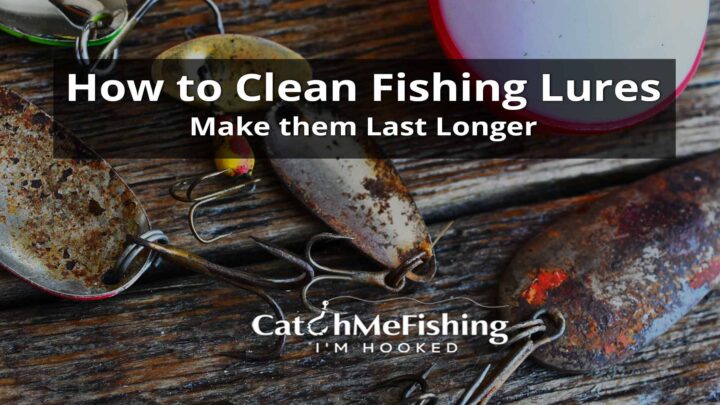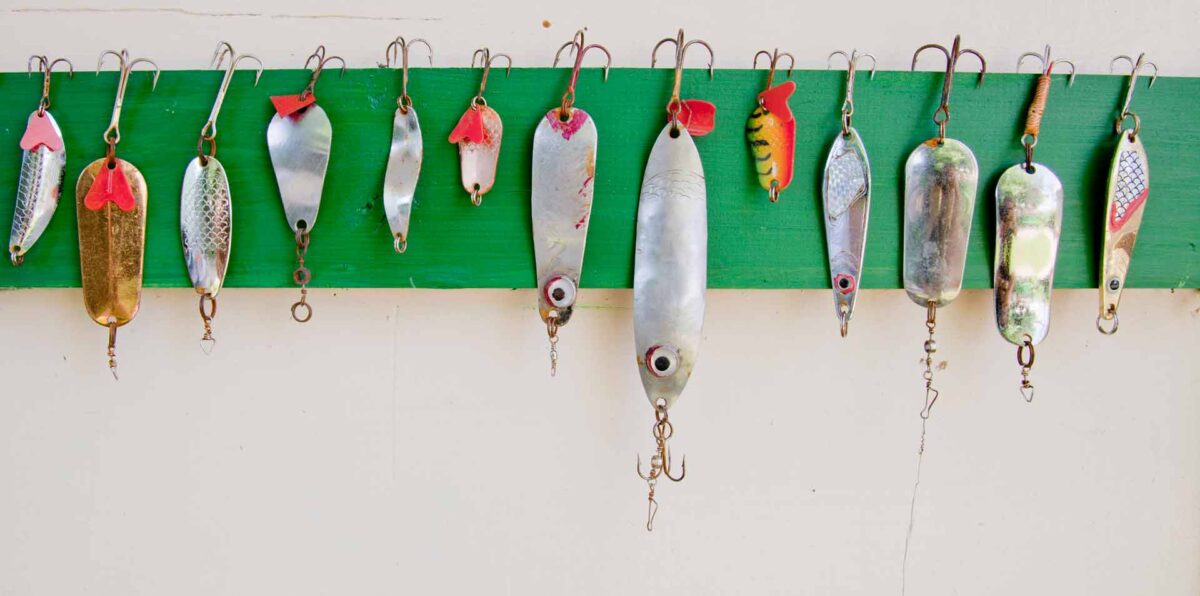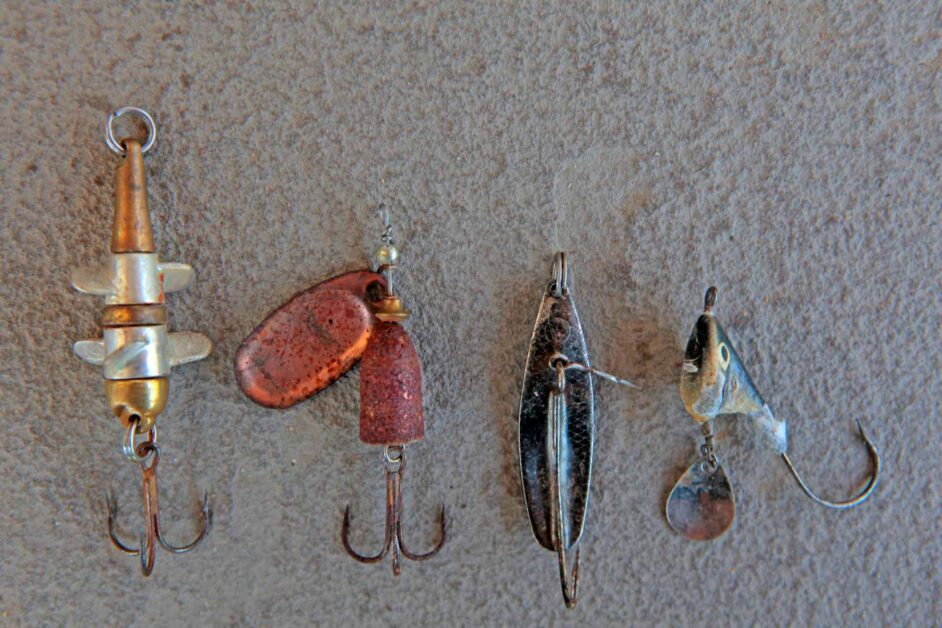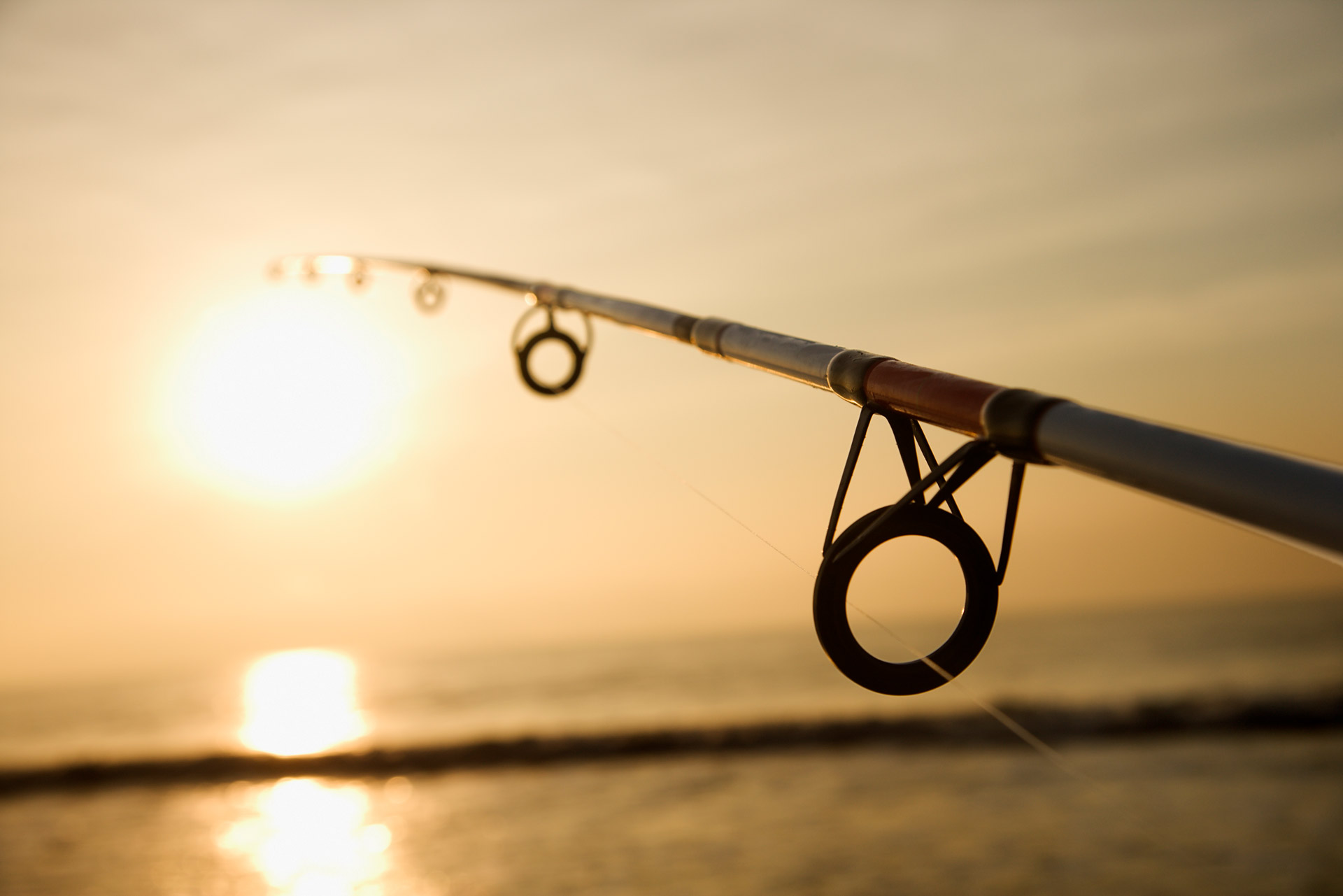How to Clean Fishing Lures: Make them Last Longer

Fishing lures are an essential part of fishing. Learning how to clean fishing lures will save you money as well as catch more fish. There are many different methods to cleaning your fishing lures, and most people use any form of soap or detergent. However, this can often damage the lure's finish.
To protect a lure's finish from wear and tear, it is best to use a non-abrasive cleaner that will eliminate dirt without damaging the surface.
This article will discuss how to clean fishing lures with household items so they won't break down and become dull over time!
Should You Clean Your Fishing Lure?

It doesn't matter if you are catching a freshwater fish or a saltwater fish. However, it is crucial to fish with a properly cleaned lure.
As a fishing devotee, I always clean my fishing lures and keep them ready for use on the next fishing trip. We should do the due diligence of cleaning them up after every fishing trip.
You can’t expect to catch much when you have a dirty and grimy lure. Therefore, it is always essential to use clean and neat lures. However, it's important to keep them nice and clean when it comes to any lures or the type of fish you are hunting for.
Always Use a Clean Lure
There are certain things you should always do to your lure before putting it on the line:
- First, wash off dirt or sand with fresh, clean water.
- Second, drying off any excess moisture with the towel.
- wiping down all metal surfaces to keep them shiny and clean.
Ensuring your lure is clean, colorful, and shiny is the number one reason why the fish will be attracted to and take your bait.
Lure Maintenence On a Trip
As a fisherman, you should always take care of your lures on a fishing trip. In addition, you have to be responsible for taking care of your equipment and tools to stay in top condition.
Wash Your Lures as You Fish
Washing the lures while you fish is important to stop the build-up of dirt. This is even more so important if you are fishing in saltwater.
Be sure to wash out dirt and sand from the lure now and then, even if it's not always necessary.
To wash your lure while you are fishing:
- Remove the lure from the water in which you are fishing
- Submerge the lure into freshwater and give it a shake
- Pat the lure dry with a tissue or towel.
If you cannot wash the lure while fishing, it is best to do so as soon as you get home.
Store Wet Lures Separate
Putting lures away wet can lead to rust and corrosion of metal surfaces, and deterioration of colors on plastics.
It’s also good to keep track of what lures need cleaning at the end of the trip when you return to the tackle box. If possible, try to dry the lures before storing them away.
Temporarily storing damp lures in a separate tackle box is an excellent way to keep tabs on what lures need cleaning when you get home. You won’t contaminate clean lures with corrosive saltwater that way.
Store lures in a tackle box or fishing backpack will also help keep them from becoming dusty and keep them clean over time.
How to clean fishing lures
Keeping your lures dirt-free and the color vibrant is essential. This is how to clean them correctly!
It’s not difficult at all, and you don't need any special equipment, just a few household items generally on hand.
All you need is soap and water (or a dishwashing liquid).
If you want to keep your lures in pristine condition, follow these steps below:
- First, rinse the lure in cold or warm water to loosen any dirt or grime on it.
- Take a cloth with a soapy solution (dish soap will do) all over it and rub the surface of the lure.
- Use a toothbrush to rub the soap into the lure gently.
- Rinse the soap and dirt away and dry the lure with a towel.
How to Get the Rust off Lures?

Removing rust from your lure and renewing old lures is a simple process that can be done in just a few easy steps.
It’s crucial to remember how important it is to clean your lures before you store them away after each fishing trip and how long they would last if left dirty.
I have found the following tips helpful when removing rust from my favorite lure:
● First, clean the rust off with a wire brush. Being careful not to remove the paint or metal layer. You can also use a toothbrush to do this.
● Next, cover the metal surface of your lure with WD-40 and let it soak overnight.
● Next, dip a cotton swab (q tip) in white vinegar and rub it over all of the rust spots. Let it sit for a few minutes.
● Wash off any excess oil and vinegar to reveal clean, shiny surfaces on your lures again!
● Rinse with warm water, then dry off completely before using again.
Vinegar is perfect for removing rust from lures because it is acidic. It will also help the metal surfaces be shiny and clean again - without damaging them in any way!
It’s important to dry your lure entirely before storing it away so that no water spots can form on its surface and keep rusting.
Salt is Bad for Your Lures
Salt is terrible for your fishing lures. It causes corrosion on metal surfaces and can also cause the deterioration of colors on plastics.
It’s important to clean your lure well before you put it away after a fishing trip, especially if you are going saltwater fishing. Salt water is very corrosive, so always be sure not to leave the lures wet at any time!
Clean Lures and Great Success
By following these simple steps for cleaning your fishing lures, you can make sure that they will stay in good shape and last a long time.
After each trip, it is best to clean the lure before putting it away so that no salt or dirt accumulates on its surface, as this can lead to corrosion of metal surfaces over time, which
Remember, there are a few ways to keep your lures clean and from rusting.
Always rinse the lures in cold or warm water to loosen dirt or grime on them before you start cleaning them!
Use a cloth, toothbrush, dish soap (or other dishwashing liquids), water, white vinegar, WD-40, cotton swabs, and towels.
Always dry your lures completely, making sure to remove any salt water before storing them away.
Now you know how to keep your lures clean. Then, it's time to get on the lake and hook them giant largemouth bass!
Good luck with your fishing adventures.



